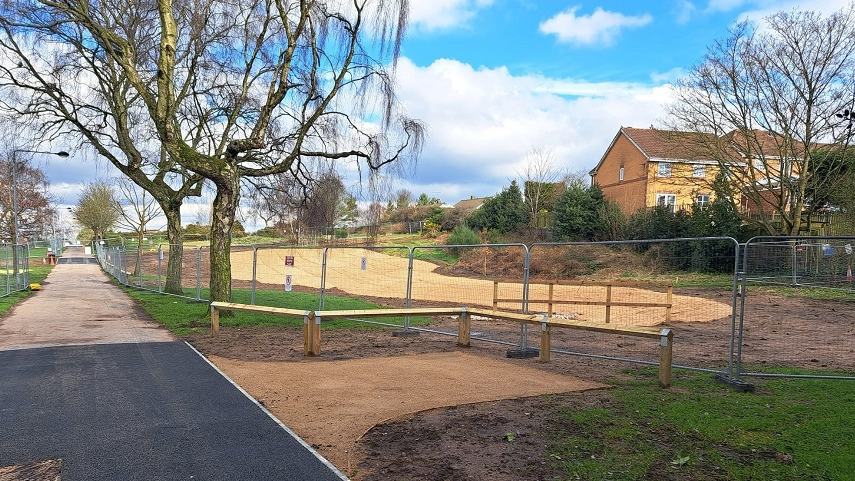As Severn Trent’s £76 million Mansfield project to reduce flooding by turning to nature continues, the company will be creating detention basins on the Oak Tree Estate in the town.
The project has already seen the company install many different types of sustainable drainage systems (SuDS) across Mansfield such as bioswales and rain gardens, and now the three detention basins on the estate will be the latest SuDS to be created.
During periods of heavy rainfall, detention basins store stormwater before releasing it gradually into the sewer network until completely drained, meaning the network doesn’t get overwhelmed during such events.
Work to install the first basin has started in Melbourne Park, with the three basins being able to capture over three million litres of water in total – more than the amount of water in an Olympic sized swimming pool.
SuDS such as these bring biodiversity improvements to the area, whilst having an added benefit of reducing the need for storm overflow spills, and therefore improve river health locally.
Earth taken from the dig in Melbourne Park will be used to create a plateaued area, in which local children will be able to use for football and other sports. The second and third detention basins on the estate will be installed in Magpie Park and Jubilee Way respectively.
All three basins are due to be completed by the end of August, with the estate identified as an important location for SuDS after flooding incidents in recent years.
Adam Boucher, from Severn Trent, said:
“These detention basins on the Oak Tree Estate are just three of hundreds of SuDS we’re installing across Mansfield as part of our Green Recovery. These three alone will be able to store up to an incredible three million litres of rainwater between them.
“With climate change, population growth and more development, communities like Mansfield are at increasing risk of surface water flooding during heavy rainfall, which is why we’re turning to nature to mitigate this risk, on a scale never seen before in the UK.
“Our work started six weeks ago in Melbourne Park and we’re progressing well – we’d like to thank everyone for their patience and understanding as our teams look to complete the detention basins as quickly and as safely as possible.”
This work follows the completion of a detention basin nearby in Racecourse Park earlier this month, that is capable of holding over 350,000 litres of water. A different type of sustainable drainage system, a bioswale, will be also installed on Oak Tree Lane on the edge of the estate, to collect stormwater.



